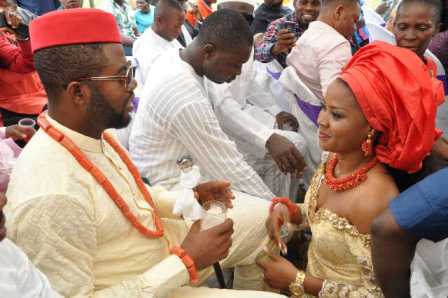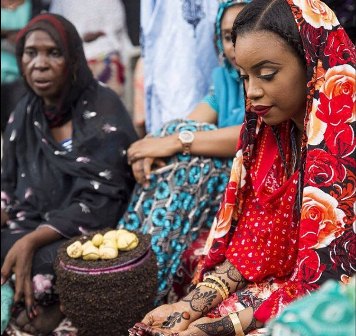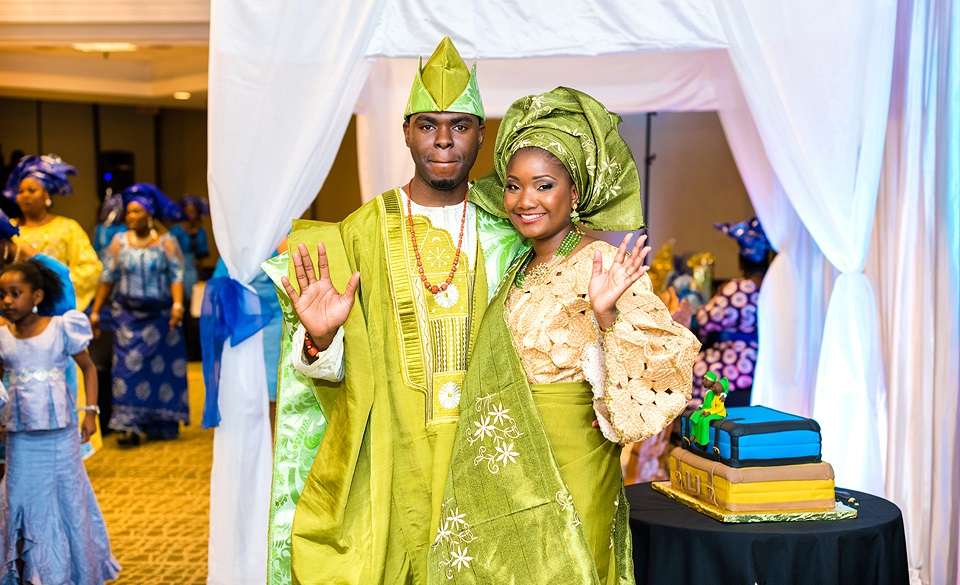

There are various ethnic communities in Nigeria and the various ethnic groups have their different marriage customs. There are however some generally accepted customs common to most of them which will be discussed here.
Marriage under customary law creates a relationship not only between a man and woman but also between the two families involved. The wife is regarded by the members of her husband's family as having been married not solely to her husband but into the family and therefore a member of their family. The husband on the other hand is not so regarded by his wife's maiden family, even though there exists a continuing relationship with that family.
Marriage under Customary Law is largely polygamous. A polygamous marriage is the union of one man with several wives. There is no limit to the number of wives a man can marry under customary law.

After intentions to marry has been communicated between the two parties concerned and also between their respective families, discreet inquiries may be carried out by each of the families in order to discover facts about the parties. These facts may sometimes be based on the familyís social and health background as well as the character of the party. For example, investigations may be carried out to find out if the family concerned has any contagious or hereditary disease such as mental illness; whether the person concerned has bad habits such as stealing or lying; or whether the family concerned belongs to the system of outcasts known as Osu (amongst the Iboís). Some of the facts found may constitute bars to the proposed marriage.
Generally the following are pre-requisites for a valid customary marriage:
When the families concerned are convinced that there are no facts that could hinder the marriage, the betrothal, which is the formal engagement of the parties will now take place.

Most of the customary laws in Nigeria do not prescribe any age for the solemnization of customary-law marriage. This lacuna in the rule of customary law has to a large extent encouraged a high incidence of child marriage, with all its attendant evils. In some areas, child betrothal is rampant but marriage does not in fact take place until the parties have attained the age of puberty. There is no doubt that there were a lot of child marriages under customary law because there was no law against child marriage (most of which occur in the northern part of the country) but since the passing of the Childís Rights Act 2003, no marriage of persons below the age of eighteen is allowed under Nigerian Law Ė section 21 of the Act.
The intending couple have to give their consent to a customary marriage. The Supreme Court in the case of Osamwonyi v. Osamwonyi 1973 NMLR 26 held that under Bini Native Law and Customs, the consent of the parties was necessary for a valid marriage under customary law. Parental consent is also necessary before a valid customary marriage can take place. In Okpanum v. Okpanum 1972 2 ECSLR 561, the High Court of East Central State of Nigeria held that in order to constitute a valid customary marriage, there must be parental consent and mutual agreement between the parties. Furthermore,

Marriage consideration otherwise called bride price is one of the essential requirements of a valid customary marriage. The bride price includes any gift or payment in the form of money, natural produce or any kind of property given by an intending husband and his family to the parents or guardian of a female person on account of the marriage.
Solemnization or celebration is an essential ingredient of a valid customary law marriage. It generally involves breaking kola, pouring libation, sharing drinks and other activities. The bride is invariably handed over to the bridegroom and his family. In the case of Omoga v. Badejo 1985 NCNLR 1075, the Court held that there must be a formal handing over of the bride to the groom in the presence of the two families and witnesses and the acceptance and taking away of the bride to her husbandís house for marriage under Yoruba Native Law and Custom, to be valid.
Consummation of the marriage under Native Law and Custom is essential. Consummation simply means having sex, with a view to making a marriage complete. In traditional societies, the very night of the marriage is eagerly awaited by the groomís family as he is expected to announce his exploits to his family and state if his wife was found intact or not.